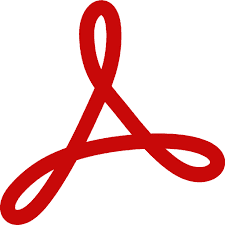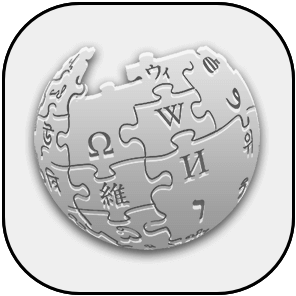Was ist Coaching?

Coaching kann als Methode und Technik beschrieben werden, die für das Führen einer Einzelperson zu neuem Lernen in definierten Zeitrahmen verwendet werden kann.
Es gibt viele Definitionen für Coaching. Aufgrund so vieler unterschiedlicher und unvereinbarer Definitionen wurde vorgeschlagen, dass die Debatte über das Definieren von Coaching zur Zeit eine Übung im Abstrahieren ist (Jackson, 2005). Sogar überaus produktive akademische Autoren (Clutterbuck und Megginson, 2005) ändern ihren Standpunkt und zeigen, dass sich der Bereich immer noch entwickelt und fließend ist. Im Jahr 1994 bezieht sich Garvey (1994) auf „eins-zu-eins Helfen“ und schlägt folglich das Konzept des Neudefinierens der Bezeichnung vor, mit der fast Esperanto-ähnlichen Hoffnung, das „eins-zu-eins Helfen“ die Wiedergeburt einer undurchsichtigen Bezeichnung sein könnte, die zwar effektiv in Bezug auf das Beschreiben ist, aber nicht "haftend" genug in Bezug auf Markenbildung.
Einige Autoren haben vorgeschlagen, dass Mentoring das Modell für Coaching ist und das Mentoring als ein Arbeitstitel zu formal ist. Sie verwenden das Wort Coach, da es leichter zu verdauen ist (Hudson, 1999). Vor kurzem, in einem heroischen Versuch eine etwaige Form des Zusammenhangs innerhalb dieses konfusen Vista zu schaffen, sehen wir, dass prominente Autoren in dem Bereich nicht glücklich darüber sind, eine der Aktivitäten als eine Teilmenge der anderen zu akzeptieren. Sie sagen kategorisch, dass die Unterscheidungen zwischen diesen zwei Bezeichnungen Konfusion verursacht und das die Gemeinschaft beginnen sollte, sich auf eine allgemein akzeptierte Coach-Mentorbezeichnung zu einigen (Parsloe u. Wray, 2005).
Coachingdefinitionen können so einfach und umfassend sein, wie „der Prozess des Bevollmächtigens anderer“ (Whitmore, 1997). Oder definitiver: „ein Prozess, der das Auftreten von Lernen und Entwicklung und dadurch die Verbesserung der Performance ermöglicht“. Um ein erfolgreicher Coach zu sein, erfordert es ein Wissen und ein Verständnis vom Prozess, sowie die Vielzahl von Stilen, Fähigkeiten und Techniken, die im Kontext angebracht sind, in dem das Coaching stattfindet (Parsloe, 1999). Perspektive spielt auch eine sehr große Rolle in der Interpretation einer individuellen Definition der Beitragenden. Der Coach verschiebt den Fokus auf die Resultate des Jobs (Megginson und Clutterbuck, 1995) und einen primären Fokus auf Leistung innerhalb des gegenwärtigen Jobs und hebt die Entwicklung von Fähigkeiten hervor (Clutterbuck, 2004).
Definitionen durch Coaches haben sich über die Jahre entwickelt. Von dem zum Teil wunderlichen, möglicherweise gefährlichen und abgeschotteten Glauben, dass der „wichtigste Aspekt des Coachings akzeptiert, respektiert, und sich um ihn gekümmert wird, anstatt der Austausch von Informationen zwischen dem Coach und dem Gecoachten“ (Olalla, 1998). Zu der Unternehmensdefinition, die besagt, dass „Coaching ein ermöglichender Prozess ist, um Leistung, Entwicklung und Erfüllung zu erhöhen“ (Alexander u. Renshaw, 2005). Interessanterweise bietet Megginson (1988) im Jahr 1988 den Standpunkt an, dass Coaching in der Entwicklung einer Person effektiver ist, wenn es in spezifischen Stadien durchgeführt wird. Somit ist Coaching im Kontext der Geschäftswelt weitaus rollen-, job- und projektspezifischer (Williams, 2000). Wenn wir diesem Gedankenzug folgen, das spezifische Interventionen zu angebrachten Zeitpunkten in der Entwicklung einer Person die wirkungsvollste Methodik ist, dann wird eine Durchsicht der breiten Reihe der Coachinginterventionen benötigt. Und wir werden sehen, dass das Neue ist, dass das Coaching Psychologie, Sportpsychologie und Ausbildung fusioniert hat (Zeus u. Skiffington, 2000) und nun mit dem Aufbauen von „Marktfähigkeit und Glaubwürdigkeit“ beschäftigt ist.
Ursprung des Coachings. Geschichte
Die Bezeichnung „Trainer“ ist erste gesehen in das 1500's, das auf eine Methode des Wagens, wirklich einen Pferd gezogenen Träger sich bezieht und entsteht in der kleinen ungarischen Stadt von Kócs (ausgesprochen „Koach“). In der Mitte der 1850er wurde das Wort Coach an englischen Universitäten in Bezug auf eine Person verwendet, die Kursteilnehmern in der Prüfungvorbereitung (Zeus und Skiffington, 2005) half und anscheinend Verbindungen mit dem „Einpaucken“ des Wiederaufrufens der Multitaskingfähigkeiten zu haben scheint, die mit dem Steuern eines Pferdewagens verbunden sind (Wikipedia, 2005). Coaching sieht seine Wurzeln in der humanistischen Psychologie (Zeus u. Skiffington, 2000) und fokussiert sich auf die Würde und den intrinsischen Wert einer Person.
Coaching in der Geschäftswelt
Da die humanistische Bewegung aufzutauchen beginnt, fangen wir an, ein paralleles Hervortreten des Coachings innerhalb der Geschäftswelt zu sehen, das innerhalb der gleichartigen nachgeprüften Journale gesehen werden kann. Gorby (1937) beschreibt, das ältere Angestellte neue Angestellte coachen, um Ausschuss zu verringern, und um somit eine Leistungsprämie zu erzielen. Bigelow (1938) erzählt von Verkaufsleitern, die Verkäufer coachen. Mold (1951) berichtete über ein „Manager als Trainer“-Programm. Hayden (1955) argumentierte, dass „nachfassendes“ Coaching Beurteilungen verbesserte. Mahler (1964) zeigte die Schwierigkeiten der Organisationen, die ihre Manager veranlassen, wirkungsvolle Trainer zu sein. Gersham (1967) wertete den Effekt von Vorgesetzten auf „Haltung und Job-Performance“ aus. Tobias (1996) berichtet über einen technisch „ausgezeichneten“, 44 Jahre alten Manager, der auf „Soft Skills“ gecoacht wird. Obwohl in „von Fachleuten begutachteten Journalen“ berichtet, sind die Empfehlungen überwiegend „Fallstudien“ und „Kommentare“ im Vergleich zu rigorosen analytischen Arbeiten, wie der neueren Studie durch die Manchester Consulting Group (Zeus u. Skiffington, 2005). Diese Gruppe berichtet ein 5.7 mal höheres ROI in Bezug auf ein Coachingprogramm, das zwischen 1996-2000 eingeführt wurde. Auch der Forschungsfokus wurde in Richtung Produktion ausgerichtet, da dieses die finanzielle Powerbase zu dieser Zeit war und die Konzepte von „bevollmächtigten Belegschaften“ und „Humankapital“ noch nicht mehr als ein operatives Hilfsmittel war.
Anscheinend war das „Lebenscoaching“ Konzept die erste, nach modernen Definitionen, Coaching ähnliche Aktivität in einem Programm, das auf Schulabbrecher ausgerichtet wird. Diese Arbeit an der vordersten Front des Krieges gegen Armut begann in den fünfziger Jahren durch ein YMCA-geförderten Trainingskurs in Bedford-Stuyvesant, Brooklyn, N.Y. Das Ziel war es, nach effektiveren Beratungs-/Lernmethoden im Helfen von Leuten zu suchen, um die die psychologischen und sozialen Fähigkeiten für das Umgehen mit den vorhersehbaren Entwicklungsproblemen des Leben zu lernen (Adkins, 2006). Gegen Ende der sechziger Jahre wurde die Forschung rigoroser (Bewilligung u. Cavanagh, 2004). Dieser Fokus auf akademischere Methodiken war der Katalysator für die Glaubwürdigkeit, die durch die progressiveren kommerziellen Einrichtungen erfordert wurde. Und dadurch tauchte die Geburt des Executive- und Unternehmenscoachings von Führungsprogrammen in den achtziger Jahren auf (Zeus u. Skiffington, 2005).
Der tatsächliche Durchbruch des Coachings kam mit dem Mix von Sport und der Geschäftswelt, praktisch sich selbst neuerfindend. Tim Gallwey (1974) mit seinem Inner Game of Tennis, war ein primärer Katalysator für Coaching in einem Geschäftskontext, mit der schnellen Nachfolge anderer angesehener Sportcoaches, wie: John Whitmore (Champion Rennfahrer), David Hemery (olympischer Hürden-Medaillenträger) und David Witaker (olympischer Hockeycoach).
Coaching in seiner modernen Aufmachung wurde aus der konstruktionistischen Lerntheorie heraus geboren (Williams u. Irving, 2001), mit einem Kernglauben, dass es keinen einzigen wahren Interpreten oder Interpretation in der Wirklichkeit gibt (Zeus u. Skiffington 2005). Man kann die Geburt des Coachings von den Prinzipien sehen, die aussagen: wir „alle konstruieren unser eigenes Verständnis der Welt, in der wir leben, durch Reflexion auf unsere Erfahrungen“. Und interessanterweise sehen wir mit den neunziger Jahren, was einige glauben, ein Aufschwung in „quasi-philosophischen“ Gruppen zu sein und besonderen Gefallen an denen zu finden, die im Management und in der Kommunikationsentwicklung involviert sind (Parsloe u. Wray, 2005) ist es möglich zu sehen, wie Phänomene wie NLP (Grinder u. Bandler, 1989) von solchen Bereichen wie konstruktionistischer Theorie, Bateson's (2000) Kybernetik, Chomsky's (1972) Sprachentheorie und Landamatics (Landa, 1974) die besten "Rosinen herausgepickt" haben. Es ist dieser „Rosinenpicken“-Ansatz und die Forderungen einer kommerziellen unternehmerischen Welt, die den Anruf für ein „Wissenschaftler-Praktiker-Modell des Coachings“ erzeugt haben, in dem eine akademischere und rigorosere Methodik als ein Benchmark und eine Validierung des Bereiches dienen werden. Für viele ist Coaching noch lange kein Beruf, trotz der Existenz von denen, die professionell coachen (Grant, 2003b). Die gegenwärtigen Belange der Definition und der Gültigkeit können durch einen Beruf erklärt werden, der mehr „zusammengelaufen“, als in seiner gegenwärtigen Position „aufgetaucht“ ist.
Gebrauch des Coachings. Anwendungen
- Unternehmenscoach.
- Executivecoach.
- Lebenscoach.
- Performancecoach.
- Sportcoach.
- Arbeitsplatzcoach.
Schritte im Coaching. Prozess
Keine universelle Übereinstimmung.
Stärken des Coachings. Nutzen
- Der überwiegende Nutzen des Coachings zur Einzelperson und zum Geschäft ist die Erleichterung des selbstbestimmten Lernens. Obwohl das Lernen durch einen Coach ermöglicht wird, liegt der tatsächliche zugrundeliegende Nutzen des Coachings in der Fähigkeit der Einzelperson, aus der Erfahrung als ein fähigerer Mitwirkender "hervorzugehen".
- In Bezug auf das Beibehalten und das Entwickeln von Talent zeigen Studien beträchtliche Vorteile für Firmen, die aktiv Coaching während Übergangs-/Änderungsphasen anregen.
- ROI für Coaching ist beträchtlich höher, als für normalen Klassenunterricht, besonders in der Gemeinschaft der leitenden Angestellten, wo Studien zeigen, das sie 30 mal schneller als mittlere Belegschaft abschalten.
Einschränkungen des Coachings. Nachteile
- Coaching ist keine Therapie. Wenn dies der Fall ist, kann der Gecoachte davon abhängig werden.
- Kann als Prestigeposition in einem Unternehmen gesehen werden und kann somit ein Klischee der Coaches und der politischen Beeinflusser schaffen.
- Versuchen Sie, Ihrem Chef zu sagen, dass er ein mieser Coach ist!
Annahmen des Coachings. Bedingungen
- Coaching bezieht sich tatsächlich auf die Idee von Malcolm Knowles und „Erwachsenenlernen“, die im wesentlichen besagen, dass die Einzelperson Verantwortlichkeit für ihr eigenes Lernen trägt und alle Verpflichtungen „geführt, anstatt geleitet“ werden sollten.
- Dieses ist ein unglaublich kompliziertes Thema für solch eine einfache Sache. Der Grund dafür, das Coaching nicht selbst laut Definition ein Modell ist, sind Modelle wie WACHSEN, die Werkzeuge des Coachings sind.
- Z.Z. gibt es keine zentralen Modelle, die eine universell geltende Definition anbieten.
Buch: Zeus & Skiffington - The Coaching at Work Toolkit
Buch: Mary Beth O'Neill - Executive Coaching with Backbone and Heart
Buch: Bruce Peltier - The Psychology of Executive Coaching
|
Forumsdiskussionen über Coaching.

|
Coaching by Managers and by Leaders
I've been a long time manager in multinational companies and I am since 8 years a self-employed business coach. As a professional coach I support my coachees in finding their own solution of their own...
 47  27 Kommentare |

|
The GROW Model / Coaching Framework
There is a coaching model from partnership coaching, called "GROW" involving a set of exploring questions:
G - GOALS - what do we want to accomplish / discuss
R - REALITY - what is happening now
O ...
 40  18 Kommentare |

|
Has Coaching Become Too Technical?
I have been researching coaching for a number of years - partly in the hunt for the 'simple but effective' set of tools. The more I read, the more I seem to get confused.
In my early learning of coac...
 23  9 Kommentare |

|
Qualities of a Good Coach. Checklist
The importance of coaching cannot be underestimated. However, identifying a good coach is far from easy. Here's a checklist of qualities for a good coach I recommend:
- More knowledgeable in the area...
 20  5 Kommentare |

|
Effective Coaching
An effective coach is a skilled and knowledgeable individual who understands that all individuals, if they are not already achieving their true desires, are offering some form of resistance in terms o...
 15  6 Kommentare |

|
The Impact of Personal Coaching
Personal career coaching is akin to having a skilled navigator on a journey towards professional fulfillment. A coach serves as a GUIDING LIGHT, illuminating the path, and providing valuable insights ...
 15  11 Kommentare |

|
How to Get Help from Someone Else?
Most people are a bit reluctant to ask for help, especially in the work environment. That is because we feel uncertain, are afraid to be rejected, or fear for diminished status.
Heidi Grant argues th...
 11  9 Kommentare |

|
Coaching as Social Capital
I have always been fascinated by the references in the literatures and in coaching trainings to the coach-client relationship. Clearly the relationship is important, but is it anymore important in oth...
 11  4 Kommentare |

|
The Need for Relational Coaching
The term 'Relational Coaching' might seem to be synonymous to Coaching, since coaching always involves at least two people that communicate and form a relationship in some way. However, the term relat...
 11  4 Kommentare |

|
Coaching and Pedagogy
I would like to see the difference between coaching and the roman concept of pedagogical leading.
To me, the difference could be the knowledge the coach should have about the strenghts of the coachee...
 10  4 Kommentare |

|
Use of the Body in Coaching
What do you think about coaching approaches that use the body to generate awareness and to develop soft skills…
- Are they acceptable in your culture?
- Do they fit in corporate coaching?...
 9  5 Kommentare |

|
How to Raise Productivity by Coaching?
Be patient + be patient + be patient = success in coaching, but it is too hard to raise the productivity by coaching only.
There are too many factors involved to increase the productivity and there a...
 8  2 Kommentare |

|
The Wheel of Life: Balance your Life
Life is not uni-dimensional; balance in life comes from fulfillment in all areas. If we overly focus on one or just a few areas of our life, these tend to to weigh heavily on our psyche and bring abou...
 7 |
|
|
|
Kurse über Coaching.

Anfängerkurs
|

Fortgeschrittener Kurs
|

Kurs für Experten
|
|
|
|
Die am besten bewerteten Themen über Coaching. Hier finden Sie die wertvollsten Ideen und praktischen Vorschläge.
|
🥇
|
Team Coaching by Managers
Are you a manager or a coach? According to a new book by Google's Eric Schmidt, Jonathan Rosenberg and Alan Eagle there is little difference.
The Trillion Dollar Coach is a tribute to Bill Campbell...
 35  8 Kommentare
|
|
🥈
|
Mentoring versus Coaching
Mentoring has high interest for me. Based on my observation and that of other officers, a great gap exists in planning and delivery. So mentoring should help to improve teacher competencies. A more ex...
 28  23 Kommentare
|
|
🥉
|
ACT Hexaflex Therapy and Business Coaching
What is ACT Hexaflex Therapy. Meaning
ACT is a behavioural-focused psychological flexibility treatment or therapy which was developed by Steven C. Hayes in the 1980s. ACT is a process-based therapy, ...
 21
|

|
Preconditions for Successful Coaching
I believe that coaching is a tool that helps to facilitate the learning progress of certain practices or habits. It does not produce a change on its own. It depends a lot on the WILL of the one being ...
 19  4 Kommentare
|

|
Why Leaders Need Coaching
Leaders must be very conscious of their actions and of the impact they have on others. Coaching is an excellent tool to gain consciousness. Any other reasons why coaching is particularly useful for le...
 12  9 Kommentare
|
|
|
|
Erweiterte Einblicke zu Coaching (Englisch). Hier finden Sie professionelle Ratschläge von Experten.

Beratungstipps
|

Unterrichtstipps
|

Praktische Umsetzungstipps
|
|
|

|
Myths on REACHING the top What Experiences, Qualifications and Characteristics are Needed to Reach the Top?
I'd like to contribute a summary of an article by HRM Professor Monika Hamori of Instituto de Empresa Business School. H...
|

|
How to Prepare Someone for a Critical Situation Leadership, Crisis Management, Preparing for a Major Event, Preparing for a Pivotal Moment, Coaching, Negotiating
When people are connected to their core self and values, they are more likely to achieve their best performance as they ...
|

|
Write a Personal Mission Statement Establish focus on who you want to be in your life...
Covey wrote this pearl of wisdom in his book Seven Habits: "The key to the ability to change is a changeless sense of wh...
|

|
Building an Organizational Coaching Capacity Developing an Organizational Coaching Capacity, Learning Organization, Developing Coaching as an Organizational Capacity
COACHING ON AN INDIVIDUAL LEVEL
In their book "Trillion Dollar Coach: Lessons for Managers", Google's Schmidt, Rosenber...
|

|
GENIUS Coaching Model Coaching Talented People
I developed the GENIUS coaching model as a guide to managing a creative thinking coaching session. This grew out of my e...
|

|
What is Your Leadership Point of View? Reflection on your Leadership Style
In my experience very few leaders are able to define and succinctly articulate their leadership point of view. The reaso...
|

|
Promotion-focused versus Prevention-focused Employees Motivating your Coachee
An interesting way to look at coachees for motivation purposes is described by Heidi Grant Halverson and E. Tory Higgin...
|

|
Personal Benefits of Coaching Explaining the Advantages of Coaching at Coacheel Level
Here is a list of some typical advantages of using a coach as an assistant to your personal and professional development...
|

|
History of Coaching Organizational Development, Background of Coaching
- In the context of management, the term coaching appears to have first been used by Myles Mace in 1958 and was seen as ...
|

|
The GROWTH Framework for Coaching Extended Coaching Model to Guide Coach-Coachee Interactions
The GROWTH model adds two more dimensions to this coaching model. Once deciding what the coachee will do, we look at:
-...
|

|
Identify and Develop Leadership Abilities Leadership Development, Management Development, Coaching, Mentoring
Covey's 4 Roles of Leadership® helps managers to identify and develop 4 important abilities of 'true' leaders:
Modeling...
|

|
Organizational Benefits of Coaching Explaining the Advantages of Coaching at Organizational Level
Here are some typical benefits of using a coach to overcome problems within an organization:
- Coaches may help to iden...
|

|
What is the Opposite of Situational Leadership? Leadership Development, Management Development, Coaching, Mentoring
Situational Leadership can be seen as an adaptive style. The opposite, non-adaptive, or inflexible, style of leadership ...
|

|
Five Leadership Development Ideas Leadership Development, Management Development, Coaching, Mentoring
Although years of research and analysis by biographers, historians, and scholars have produced an enormous library of bo...
|

|
How to Develop your Own Leadership Philosophy Leadership/Management Development, Coaching, Mentoring
In an article “When should a leader be directive or empowering? How to develop your own situational theory of leadership...
|

|
Ineffective Behavior Analyzing Manager, Employee or Self Behavior
There are many different forms or manifestations of ineffective behavior, such as
- Finding it difficult to say 'no'.
...
|

|
4 Patterns of Behavior Creating Behavioral Awareness
According to Willem Roding there are 4 patterns cuasing behavior:
1. INSTINCT: Stimulus --> Reflex. Automatic decision:...
|

|
The Relationship between the Power of Leaders and Overconfidence Leadership, Power, Leadership Development, Executive Education
Fast et al. (2012) researched the relationship between power and overconfidence. In many cases it can be seen that decis...
|

|
Psychoanalysis and Coaching Similarities and Differences
Psychoanalysis is focused on what does not work, on dis-functional thoughts and behaviour, depending on the approach it ...
|

|
Recognizing Distressed Managers in Leadership Pipeline Transition Coaching, Mentoring, Management Development, Leadership Development
Moving from one manager level/phase to the following in the Management / Leadership Pipeline is a difficult task. Freedm...
|

|
Freud's Personality Types Personality Types, Leadership Development, Management Development, Coaching, Mentoring
Freud recognized that there are an almost infinite variety of personalities which could be in the end broken down into 3...
|

|
How to Assess Relational Skills of the Coachee? Human Resources, Leadership
You can use the 4 dimensions of relational skills to assess relational skills:
Influence skills:
- Look for a history...
|

|
How to Develop Better Relational Skills? Human Resources, Leadership
Although it is not necessary to be interested in or skilled at all four dimensions of relational work in order to succee...
|

|
CEOs Time Spent per Stakeholder / Constituency CEO Coaching, CEO Time Management, Stakeholder Management
Research by Porter, Nohria and Higgins among 27 CEOs revealed the following interesting data on with whom they spend the...
|

|
The Best Managers in Coaching Employee Development, Employee Growth, Coaching by Managers, Mentoring, Career Management, Management Development
Gartner (2018) surveyed 7,300 employees and executives across 25 industries and found that there are 4 types of managers...
|

|
Family-Work Conflicts (FWC) and Daily Job Performance Family-work conflicts, Coaching, Mentoring, Job Performance
FAMILY ROLES and WORK are two factors influencing each other: - Work can interfere with family roles; this is called a W...
|

|
Practical Tips to Increase the Performance of your Employees Employee Development, Employee Growth, Coaching by Managers, Mentoring, Career Management, Management Development
The performance of an employee (or a team of them) depends on many factors. One of the main factors is how well the empl...
|

|
Leadership Self-Assessement Leadership Training, Leadership Development, Coaching, Mentoring
Before you seek training in leadership, you should assess your strenghts and weaknesses as a Leader by comparing with th...
|
|
|
|
Verschiedene Informationsquellen zu Coaching. Hier finden Sie Powerpoints, Videos, Nachrichten usw., die Sie in Ihren eigenen Vorträgen und Workshops verwenden können.

|
The Fatal Coaching Mistake by Managers Coaching, Mentoring, Management, Leadership
Managers and executives often don't realize how much influence they have over their staff, by just being their superior...
|

|
How to Become a Master Manager? Introduction to Managing People. Know Thyself
This good introduction presentation is about how to be a Master Manager. By J. S. Osland, D. A. Kolb, I. M. Rubin and M....
|

|
Introduction to Coaching Employees Organizational Coaching, Employee Assistance
Presentation about Coaching, thereby focusing on Employee Assistance (EA) coaching.
1. The Importance of Coaching
2. C...
|

|
Coaching vs Counseling A Comparison
Comparison of counseling and coaching on 6 characteristics....
|

|
Building the Helping Relationship 10 Principles for Facilitative Consultancy
Superb article by MIT Professor and OD consultant Edgar H. Schein in which he concludes that:
"... The decisive factor ...
|

|
Assess your Personality Type to Plan your Career Career Management, Career Planning, Personality Types
This presentation elaborates on how to define your personality and the career that suits best to you. The presentation i...
|

|
NLP: The 6 Neurological Levels 6 layers to view at the reality of a person or issue
Neuro Linguistic Programming (NLP) is used increasingly by businesses and individuals in HR, marketing, sales and organi...
|

|
Hearing versus Listening Communicating Effectively, Active Listening, Coaching, Mentoring
A comprehensive presentation about listening and how to do it well.
Includes a scheme of the steps in the listening pro...
|

|
Daniel Goleman on Competence Development Competence Development, Coaching, Mentoring
Daniel Goleman gives 5 steps on how to develop a personal competence:
1. Ask yourself: Do I really care?
2. Get honest...
|

|
Coaching vs Mentoring A Comparison
Comparison of mentoring and coaching on 7 characteristics....
|

|
Introduction and Summary of (Executive) Coaching Initial Understanding of Coaching
Chris Ruisi explains:
1. What is coaching?
2. What makes a good coach?
3. What is special about executive coaching?
...
|

|
Steven Covey on his 8 Habits of Effective People / Managers / Leaders Understanding the 8 Habits of Covey. Leadership Development, Management Development, Coaching, Mentoring
In this video Steven Covey explains his 7 habits plus the 8th habit he added later:
1. Be proactive
2. Begin with the ...
|

|
The Performance Effects of Coaching Coaching, Performance
Paper by Ritu Agarwal, Corey M. Angst and Massimo Magni on the effects of managers' coaching intensity on the performanc...
|

|
How to Manage Challenging Situations and Challenging People? People Management, Conflict Management, Persuasion, Challenging Situations
This presentation is about the management of Conflicts, other challenging situations and about managing challenging peop...
|

|
Manager? Why you need Coaching and Mentoring Skills Management Skills, Coaching Skills, Mentoring Skills, Management Development, Leadership Development
Effective managers understand the difference between their role as a mentor and as a coach in developing their people an...
|

|
Practical Communication Tips for Managers Management Skills, Leadership Skills, Management Development, Leadership Development, Situational Leadership
As manager you need to combine professional expertise and experience with specific character traits, interpersonal and c...
|

|
Communication Essentials: Non-verbal, Verbal and Listening Skills Communication Skills, Personal Skills, Confidence, Power, Influence, Sincerity, Trust
Presentation about communication skills, including non-verbal and verbal communication and listening skills. The present...
|

|
Mindfulness and Wellbeing at Work Wellbeing, Well-being, Mindfulness, Motivation, Employee Commitment Time Management, Coaching
This presentation elaborates on the concept of mindfulness in the workplace, and includes the following sections:
1. Ou...
|

|
The Role of Supervisor | Skills of Supervisors Skills of a Supervisor, Supervisor Role, Supervisor Behavior
This presentation elaborates on the skills that supervisors need in order to be successful in their business/organizatio...
|

|
All the World is a Stage (Shakespeare) Impression Management, Communication
Explanation of the main ideas of sociologist Erving Goffman regarding Impression Management.
Shakespeare wrote: "A...
|

|
Johan Cruijff on Coaching Coaching, Mentoring, Goal Setting, Teamwork
In this video legendary Dutch football player and coach Johan Cruijff (1947-2016) presents some of his inimitable ideas ...
|

|
Young Steve Jobs on the Role of Managers Management, Leadership, Talent Management, Talent Acquisition, Talent Development
This video is a nice start for any management course. Jobs shares some ideas on managers (in a high-tech environment) an...
|

|
How you can Change and Improve Yourself Self Development, Coaching, Mentoring, Management Development, Leadership Development
Coach Tony Robbins explains that you can only achieve good results in changing or improving yourself if you:
Not onl...
|

|
Peer and Co-worker Relationships Relationship Management, Emotional Intelligence, Coaching, Emotional Work, Relationship at Work, Employee Relationships
This presentation is about the relationship between peer and co-workers, and includes the following sections:
1. Nature...
|

|
Guide Toward Coaching your Employees Coaching Employees, Performance Reviews, Giving Effective Feedback
Presentation that provides information about the ways to effectively coach employees. The presentation includes the foll...
|
|
|
|
Nützliche Tools bezüglich Coaching.

Nachrichten
|

Videos
|

Präsentationen
|
| |

Bücher
|

Akademisch
|

Mehr
|
|
|
|
Vergleichen Sie mit Coaching: Mentoring | Facilitationsarten | Leadership Nachfolgeplanung | Hagberg Modell der persönlichen Macht | Kulturdimensionen | Kulturelle Intelligenz | Emotionale Intelligenz | Verhaltensgitter | 4 Dimensionen der guten Beziehungen | Maslow Bedürfnispyramide | ERG Theorie | Spiral Dynamics-Modell | Changing Organizational Cultures | Erwartungstheorie (VIE-Theorie) | Whole Brain Modell | Sieben Wege zur Effektivität | Sieben Überraschungen | Johari Fenster | EPIC ADVISERS-Konzept | Führungsstile | Level-5-Führung
Zurück zur Managementdisziplin: Veränderung & Organisation | Kommunikation & Fähigkeiten | Human Resources | Führung
Mehr Managementmethoden, Modelle und Theorie
|
|
|















